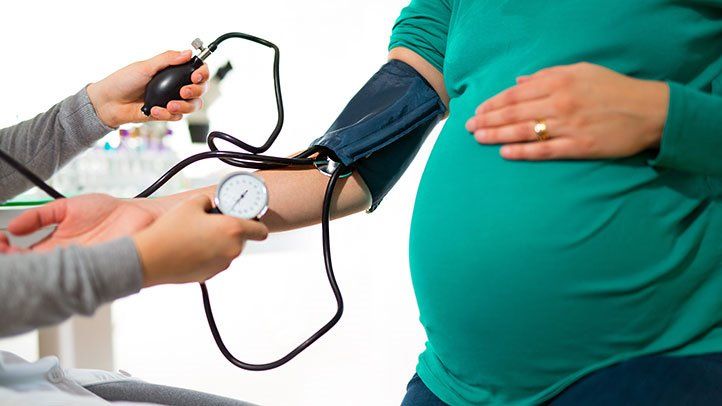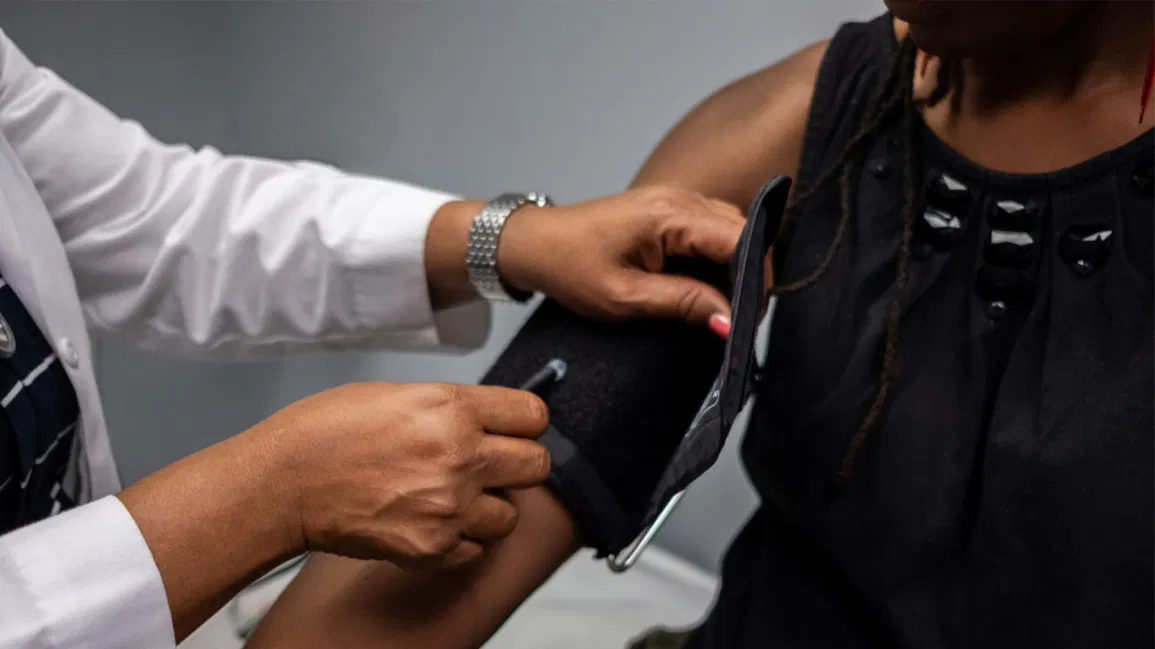A common misconception is that high blood pressure (HBP or hypertension) rarely affects women. However, nearly half of all adults with high blood pressure are women.
Women that are just 20 pounds or more overweight, have a family history of HBP, or have reached menopause are known to increase a woman’s risk.
While high blood pressure isn’t directly related to gender, throughout a woman’s life, health issues like pregnancy, pregnancy prevention (birth control), and menopause can increase the risk of developing high blood pressure.
Some Facts About High Blood Pressure
According to www.healthline.com, blood pressure is the force of blood pushing against the inside lining of the arteries. High blood pressure, or hypertension, occurs when that force increases and stays higher than normal for a period. This condition can damage the blood vessels, heart, brain, and other organs.
Hypertension is often considered a men’s health problem, but that’s a myth. The American Heart Association Trusted Source reports that about half of people with high blood pressure are women. High blood pressure impacts 1 in 3 Americans Trusted Source in their 40s, 50s, and 60s. Gender doesn’t usually impact the risk greatly, but the onset of menopause slightly raises the risk of developing high blood pressure.
Here are five things women need to know about high blood pressure according to Dr. Kershaw Patel; a cardiologist specializing in preventive cardiology at Houston Methodist

1. High Blood Pressure Symptoms in Women.
High blood pressure, especially in its early stages, can be hard to spot. That’s because the most common symptoms are, well, common. High blood pressure symptoms in women include:
- Headaches
- Fatigue
- Shortness of breath
- Chest discomfort
It’s easy to see how these symptoms could be confused with everyday stress, anxiety, or if age-appropriate, signs of menopause.
According to Dr. Patel, in some cases, a woman with high blood pressure might not have any discernible symptoms at all. The best way to monitor your risk for high blood pressure is to check your blood pressure regularly — whether at your doctor’s office or a kiosk in a pharmacy.
2. Know your Blood Pressure Numbers and What They Mean
Once you do get your blood pressure checked, it’s important to know what your current numbers mean:
- Normal blood pressure: Lower than 120/80 mmHg
- Elevated blood pressure: Between 120-129/<80 mmHg
- Hypertension, stage 1: Between 130-139/80-<90 mmHg
- Hypertension, stage 2: 140/90 mmHg or higher
For Dr. Partel, if your blood pressure is elevated, this is when we start to worry about it progressing into high blood pressure. The higher your blood pressure gets, the harder it becomes to control and the more likely you are to experience complications — so the earlier it’s diagnosed and managed, the better.
3. Pregnancy Can Expose High Blood Pressure
A new diagnosis of high blood pressure sometimes occurs during pregnancy. One reason for this is because the changes that occur during pregnancy can unmask existing high blood pressure that had been lurking in the background.”

A new diagnosis may also simply be the result of a woman having her blood pressure measured for the first time in a while at her first prenatal appointment.
There is also a specific form of high blood pressure that can occur during pregnancy, called preeclampsia. This is not uncommon and is important to manage for both the mom and baby. Preeclampsia typically goes away after delivery, but it is very important for a woman who does develop preeclampsia to follow her care team’s advice for managing it.
4. A Woman’s Risk of High Blood Pressure Increases After Menopause
Menopause, which begins once a woman goes 12 consecutive months without experiencing a period, usually around her 50s, is related to high blood pressure. During aging and menopause, there are several changes in the body related to hormone levels and body weight. These changes may increase a woman’s risk of high blood pressure.
Menopause and its symptoms also might be another reason high blood pressure sometimes goes undiagnosed in women. Symptoms of the two, such as fatigue and headaches, can overlap.
A woman may delay scheduling a check-up with her doctor about symptoms because they seem related to menopause. In this way, high blood pressure can go undiagnosed — which is yet another reason why regularly monitoring your blood pressure is so important.
5. You Can Take Steps to Prevent High Blood Pressure
The good news is that high blood pressure is avoidable. The keys to preventing high blood pressure are to focus on making healthy lifestyle choices and avoiding the habits and behaviors known to be unhealthy. High blood pressure prevention tips include:
- Regularly monitoring your blood pressure
- Maintaining a healthy weight and losing weight if you are overweight
- Eating a well-balanced diet that limits highly processed foods
- Limiting your salt intake
- Getting 150 minutes of physical activity per week
- Limiting alcohol
- Quitting smoking
- Having regular check-ups with your primary care physician
Relatedly Read WOMAN TO WOMAN: Is Your Health As Important To You As You Long For Success?
If you already have high blood pressure, the steps above become even more immediately important for you since they also help manage your blood pressure. Getting high blood pressure under control helps prevent it from progressing, and working with a preventive cardiologist can help you achieve the close monitoring needed to reach your blood pressure goals.




